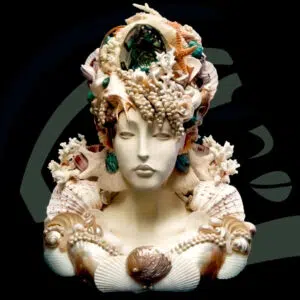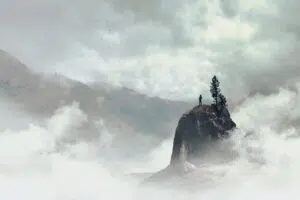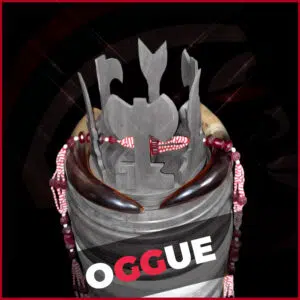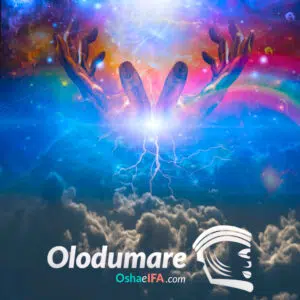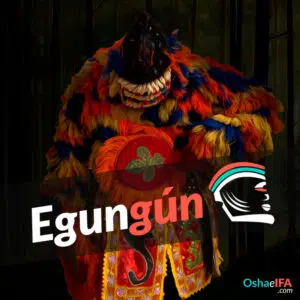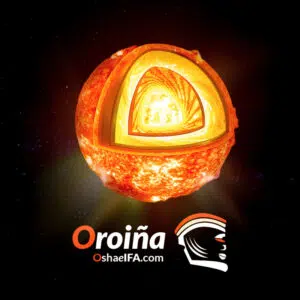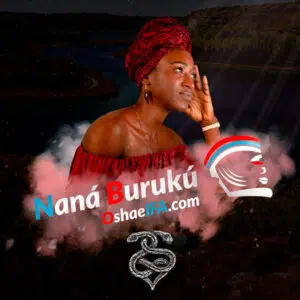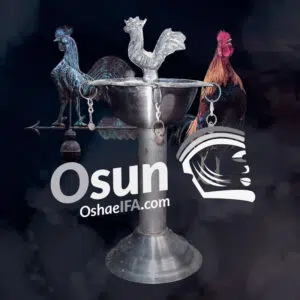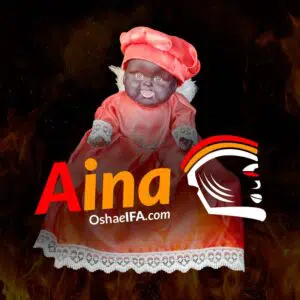Ogbe Bara: Meaning, Tips, Sayings, Traditional and more

Ogbe Bara, is the union of the older Odu Ogbè and Òbàrà, it occupies the 22nd position in the lordly order of Ifá. This Ifá sign highlights the importance of avoiding confrontations with elders and highlights the blessing and vital influence of the Orisha Shangó in our lives.
Additionally, Ifá reveals the presence of a close friend who could significantly influence the person's life. Caution is advised with this friend, who is described as being shorter. Caution is crucial, as bad influences from friends could harm your plans or activities. On the other hand, Ifá predicts that this individual will have a son who will play a crucial role in overcoming his adversaries, being stronger than them and providing indispensable support in times of conflict.
Analysis and reflection of Ogbe Bara
The Odu Ogbe Bara is an Ifá sign that reveals deep and hidden aspects of life, marked by intense spiritual phenomena and situations of betrayal. This sign, also known as the "Ifá of hidden things", signals the presence of secrets and surprising revelations that can completely transform a person's perception and circumstances. In this Odu, the importance of sincerity and trust is emphasized, since betrayal and deception are recurring themes that can lead to devastating consequences.
Economic Aspects
In the economic field, Ogbe Bara suggests a period of caution, where it is essential not to blindly trust associates or partners. This sign predicts possible betrayals in business, recommending keeping trade secrets under protection and acting prudently in investments. The Odu advises making sacrifices and following appropriate rituals to protect oneself from enmities and bad intentions that may affect economic progress.
"The great jar never lacks a hole" Ogbè Òbàrà reflects the inevitability of imperfections in any economic endeavor. Even in the greatest accumulations of wealth and the strongest businesses, there will always be areas of vulnerability that require constant attention and improvement.
"Salud"
Health in Ogbe Bara can be compromised mainly by problems related to the ear and chest. Ifá warns not to neglect symptoms that may seem minor, as they could escalate to more serious conditions. It is recommended to take special care of ear conditions and pay attention to respiratory problems. Additionally, recommendations include spiritual cleansing using natural elements such as breadfruit leaves, to maintain clarity and spiritual protection.
Religious Aspects
Religiously, Ogbe Bara highlights the need to be in tune with the Orishas, especially with Shango and Olofin. It is suggested to offer sacrifices, such as rams to Shango, to avoid adversity and attract divine protection. This Odu emphasizes the importance of receiving warriors and Ifá well, which implies being prepared and purified to receive the blessings and knowledge that these Orishas provide.
Social aspects
Ogbe Bara teaches us that "two heads are better than one", highlighting the importance of camaraderie and collaboration. In this Odu, Ifá reminds us that, although we might be tempted to achieve our goals alone, it is beneficial to have an ally with whom to share plans and projects. Those ruled by this Oddun must overcome the tendency toward self-sufficiency.
"Only you go far, as a team you go faster" Ogbè Òbàrà reflects the efficiency of collaboration in achieving objectives. While individually one can achieve great goals, teamwork allows us to achieve those same objectives more quickly and effectively, taking advantage of collective strengths.
Additionally, emphasis is placed on improving family relationships, particularly with siblings. Ifá advises that both the person and his or her brother should perform a head prayer, cooperating mutually in the preparation and acquisition of the necessary elements for the ritual. This practice not only strengthens family ties, but also enhances mutual spiritual support, benefiting the Ori of both.
Personal Relationships (Love)

In personal relationships, Ogbe Bara warns about the dangers of love betrayals and the challenges that can arise on the path of relationships. He is advised to be careful with casual lovers and maintain a cautious stance when faced with new relationships. Fidelity and honesty are crucial to maintaining harmony and mutual respect. In addition, the importance of taking care of family relationships is highlighted, since internal conflicts can lead to serious ruptures and misunderstandings.
Description and Characteristics of Ogbè Òbàrà:
What is born in the odu of Ifá Ogbe Bara?
- The secret of breadfruit.
- Let the birds feed their children by vomiting into their beaks.
- The linen fabric.
- Gestures when speaking.
- Why he prays his head with white doves.
Ogbè Òbàrà points out:
- In a sick person who dies, because, like the Alukerese ewé (ivy), which lives attached to the humidity, that person will live in the humidity, in the grave.
- That in Ituto is favorable.
- That the person, to achieve their desires, does not skimp on anything.
- Chest disease.
Recommendations:
- If you have Olokun, change the jar.
- Wash the lerí with breadfruit leaves, obi and egg white.
- Receive the Warriors, Osanyin and Ifá.
- Be careful with lovers on the street.
- Take care of ear conditions.
- Be careful with the door and the corners of your house, which can hurt you.
- Be careful with parties and invitations, as there is betrayal in the atmosphere.
- Be careful with alcoholic beverages, because it can be your misfortune.
- Don't give your name away easily without finding out first.
- If they call you, don't look back if you don't recognize who it is.
- If they ask your name, tell them your name is Needle Thin.
- Give fresh meat to Ogun and Oshosi.
- Be careful with lovers in the bus and on the street, because they can come to the house.
- To progress from food to Egun on a day of rain, storm and lightning.
Prohibitions:
- Trust no one.
- Do not eat any large painted or red beans, they are served in front of your enemies.
- Do not go to any gatherings or parties in painted clothes.
- Do not argue with anyone.
Learn everything about the Ifa odu: Ogbe Yonu
Ogbe Bara Sayings:
- The Bat, head down, observes the way the birds behave.
- The ideas of a good man are like gold bars.
- A King who dies, a King who eats. A dead King King put.
- The white hen does not realize that she is an old bird.
- He who must play a role in life is recognized by his birth.
- The great jar never lacks a hole.
- The good sun is known at dawn.
- If you dress naked and show your favor, you have not dressed him.
- The big jar cannot break itself.
"The good sun is known in the dawn" reveals how the promises and potentials of a person or situation can be glimpsed from its beginnings. Just as the dawn announces the quality of the day, the beginnings can predict future success or failure.
Ifa says: Odu Ogbe Bara

In the Odu Ogbe Bara, it is revealed that the person faces multiple complications, especially in the home, which is not functioning properly. This Odu indicates that the person is being considered to lead or control a place; However, it is essential to make a request before assuming such a position to ensure that there is no pre-existing hostility. Also, be warned that the envy of others is prominent, so it is recommended to moderate your speech to keep morale high.
In addition, eating large painted beans and attending lectures in painted clothes should be avoided; It is preferable to opt for clothing of a single color to avoid misunderstandings or negative energies. There is a warning about a pregnant woman in her house; It is crucial that her partner stop consuming alcoholic beverages, given the dangers that lurk.
Be careful with the corners of your home, as they could be places of evil. The purchase of lottery tickets in three different places is also suggested, predicting a possible great reward. This Odu also mentions the importance of making offerings and sacrifices, such as offering a goat to Ogun and following specific rituals to protect oneself from adversity and guarantee success in upcoming challenges. Vigilance is key, as threats and betrayal can arise unexpectedly.
The threatening rain was preceded by a heavy river, the rain fell, and the dew followed the rain, but the moisture on the foliage, and the flow on the ground remained stagnant. Ifá was launched for the witch wife.
Odu of Ifá Ogbè Òbàrà.
What does the Ifa sign Ogbè Òbàrà speak?
The Odu of Ifá Ogbe Bara addresses deep and varied themes, with a particular focus on family and health, highlighting the presence of diseases. In this sign, the deity Shango plays a crucial role, since it is required to offer him a sacrifice to avoid death (Iku). In addition, it is essential to receive the Warriors, Osanyin and Ifá, to strengthen spiritual protection.
This sign also reveals highly sensitive situations, such as the warning about the fragility of the dove when it is pressed against the chest, symbolizing vulnerability. It addresses the topic of women who might not marry, and mentions an Egun who whispers directly into the ear, suggesting direct spiritual influences.
Ogbe Bara is associated with religious ambition, where the consultant seeks to surpass his own godfather and lead in his spiritual community. This sign also warns of betrayals and deep secrets that can have a significant impact on the individual's life.
Historically, the sign tells how priests tricked a King into sacrificing his firstborn, not to save the people, but to destroy the King. In health matters, emphasis is placed on ear diseases, with risks of deafness if adequate attention is not paid.
Additionally, Ogbe Bara contemplates conflict dynamics, such as the possibility of godchildren turning against their spiritual mentors, and highlights the influence of Olofin in this sign. He warns about the importance of performing ebbó to maintain family harmony and avoid future conflicts.
This sign emphasizes the need to make sacrifices to Ogun and maintain good ritual practices to avoid difficulties arising from personal relationships and reprisals from higher authorities. This connection with the sacred and the need to respect rituals is fundamental in the practice of Ifá according to Ogbe Bara.
Tips when revealed in divination:
- When this ifá (Ogbè Òbàrà) comes out in atefá, the Awoses must clean themselves with Eku, Eya and Awado and throw it in a joro-joro.
- You are very incredulous and that can cost you your life.
- esu Elegua He is standing in the corner laughing at his problem.
- There are those who, because they are doing harm, what they are doing is good.
- In his house there is a great revolution.
- He is the son of a holy baron, but he has nothing for a baron.
- If she is a woman, she may be a lesbian or have two husbands; If her husband discovers her, he kills her for being unfaithful.
- You are a fortune teller.
- They are watching him to betray him.
- Be careful with your enemies.
In Osobo (negative):
- Don't be afraid, because eventually your enemies will have to cry.
- His enemies do not sleep at night because they watch over him.
- Do not work at night even with a light because over time you can go blind.
- Here powder is blown on the person on the back.
"If you dress the naked and blame him for your favor, you have not dressed him" Ogbè Òbàrà (8-6) teaches us about true generosity. Helping others should not be an act of vanity or self-praise, but rather a sincere gesture of kindness. Highlighting the favor done nullifies the essence of altruism.
It may interest you: All about the odu Obara Bogbe
Prayer of the Odu Ogbe Bara Ifa:
Ogbe Bara bi aboé baba tereré adifafun sesé, bi aboé baba tereré adifafun Shango, bi aboé baba tereré lordafun Olofin. Baba Yeku koladeo heard unlo aguere ni Orunmila to Iban Eshu.
Ebós (works) by Ogbe Bara 8-6:
Work for firmness:
Take a stick that rips the belly and hang three güiritos on it. The first güiro must be painted red and loaded with smoked jutía, the second white and loaded with smoked fish, and the third black, loaded with toasted corn and corojo butter. These elements should be offered to Elegba to strengthen spiritual and physical firmness.
Ebbo of Ogbe Obara for development:
At 12 noon, cover Elegba with a mosquito net. Light a candle, pour three potions of water at the entrance of the house and play an Obatalá agogo, requesting economic prosperity and development in personal and work endeavors.
Herbs (Ewe):
- Alukerese (Ivy).
- Hazelnuts
- Breadfruit tree.
It may interest you: Ifa Baba Ejiogbe sign
Patakies (stories) of the Ogbe Bara sign:
The war of the horse and the breadfruit
Tomu was the most famous Awó of the land of Obi Aya Nile. Olokun, who lived in that land, was always sad and crying because his wife had not been able to have children. Therefore, he decided to consult Awó Temu to understand his situation. Awó Temu revealed to him that he had to make an ebó so that his wife could conceive. Although Temu also told him that without the ebó his wife would give birth, the ritual was necessary to prevent the children from having enemies in the future.
Olokun made the ebó, but left it incomplete by not including the three necessary akukó. When his wife finally gave birth, they had twins whom they named Eshin and Afon, meaning "The Horse" and "The Breadfruit Tree," respectively.
Over time, Olokun's descendants faced the same desire to have offspring and turned to Awó Temu, who showed them the same ebó that years ago had marked their father. As before, the ebo remained incomplete. During Eshin's pregnancy, Afon's wife had a son. Eshin, frustrated because his wife had not yet given birth, consulted Temu and discovered that his brother's ebo was incomplete due to the lack of the three akukó. Enraged, Eshin attacked and killed Afon's sons.
Some time later, Eshin's wife gave birth to a boy. Upon learning of her, Afon, in revenge, drowned the boy with a flood of water.
Since then, Eshin and Afon became mortal enemies, and it is remembered that it is crucial to perform the ebo completely.
Explanation: This patakie stresses the importance of following rituals and commitments with integrity and complete precision. Leaving out essential parts of a process can lead to disastrous consequences and long-lasting conflict, proving that details not only matter, but are critical to success and harmony in our lives and relationships.
Ogbè Òbàrà, the Hunter and the Celestial Consequences
Ogbè Òbàrà, a skilled hunter, frequented a sector of the forest called Ahe. One day, he met another hunter, unaware that he was from Heaven. He showed him a part of the forest, unknown even to Ogbè Òbàrà, where celestial and earthly beings lived. Together, they decided to take a risk and set up a trap to hunt in that place, agreeing to divide the prey they captured in two.
Unfortunately, Iya Orun, celestial resident, fell into the trap. When Ogbè Òbàrà arrived and implemented the agreement, his heavenly partner was outraged to find his mother dead along with a dog. When the tragedy was discovered, the citizens of Heaven punished Earth, cutting off its supply of rain, sun, and coolness, causing a devastating famine.
Ogbè Òbàrà, seeking a solution, performed a divination and was advised to make a special sacrifice to reconcile the inhabitants of Heaven and Earth. He organized a ranch, and during its burning, they discovered seven dead animals. As the meat was shared, a dispute arose over the last piece, which was taken by the earthly ones. This angered the people of Heaven, who decided not to share anything more with the earthly ones.
Life on Earth became more arduous, and its inhabitants sought heavenly forgiveness. GOD, then, reminded everyone that Heaven is the permanent home of existence and Earth only a temporary abode. He declared that the earthly would always be subordinate to the heavenly. GOD instructed Arone, the keeper of the earthly key, to allow the return of blessings to Earth, always keeping in mind that the keys to prosperity were in Heaven.
Explanation: This story teaches us about the importance of respect and consideration for others, both on the earthly and heavenly planes. Ogbè Òbàrà's lack of prudence and respect led to catastrophic consequences, reminding us that our actions have impacts that can extend beyond our immediate environment. Furthermore, he emphasizes the need to recognize and respect hierarchies and established order, such as that between Heaven and Earth, to maintain harmony and balance in our lives.
Ogbe Bara Ifa traditional Nigerian
Verse of Ogbè Òbàrà
Obinrín sowó kókóró
Ó móko è láhun
A day fún Ebè
Èyí ti n lo rèé gbé Bàrà níyàwó
Un le lobìnrin báyìí?
Ebè bá mééjì kún eéta
O bá roko Aláwo
Wón ní kó rbo
Sùgbón or ò gbodò sahun or
Nígbà ti Ebè or gbèé
Bàrà ló gbé níyàwó
Ngbà ti Bàrà bèrè sií bímo
Ló bá bí omo dàálè
Omó kún ile
Obinrín sowó kókóró
Ó móko è láhun
A day fún Ebè
Èyí ti n lo rèé gbé Bàra níyàwó
Taa ló báwónyí beere?
Bàrà ló bímo báwònyí beer
Bara.
Ifá in Ogbe Obara, says that this person will have peace of mind. He should however take care of his wife so that he can obtain favors from her. Nor should he be stingy with her. Ifá advises him to sacrifice a club.
The woman tenaciously hunched her hands
She sees her husband as a miserable being
They guessed for Ebè (Caballón)
The day she was to marry Melon
How would I have a wife?
Ebè combined two cowries with three.
He went to the house of a Babaláwo.
They told him that he would have a wife.
They told him to perform the sacrifice.
You should not be greedy
When he got a wife to marry.
It was the melon she married.
When was it time for Melon to get pregnant
She had so many children
They filled all the available spaces.
The woman tenaciously hunched her hands
She sees her husband as a miserable being
They guessed for Ebè
The day she was to marry Melon
Who has many children?
The Melon.
It is the Melon that has many children
The Melon.
Learn about the Orishas:

